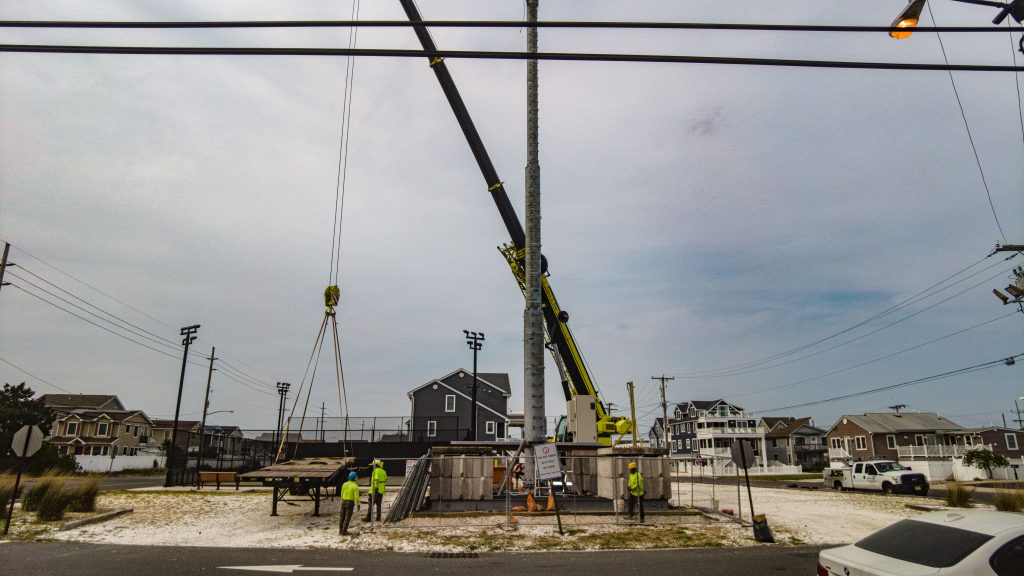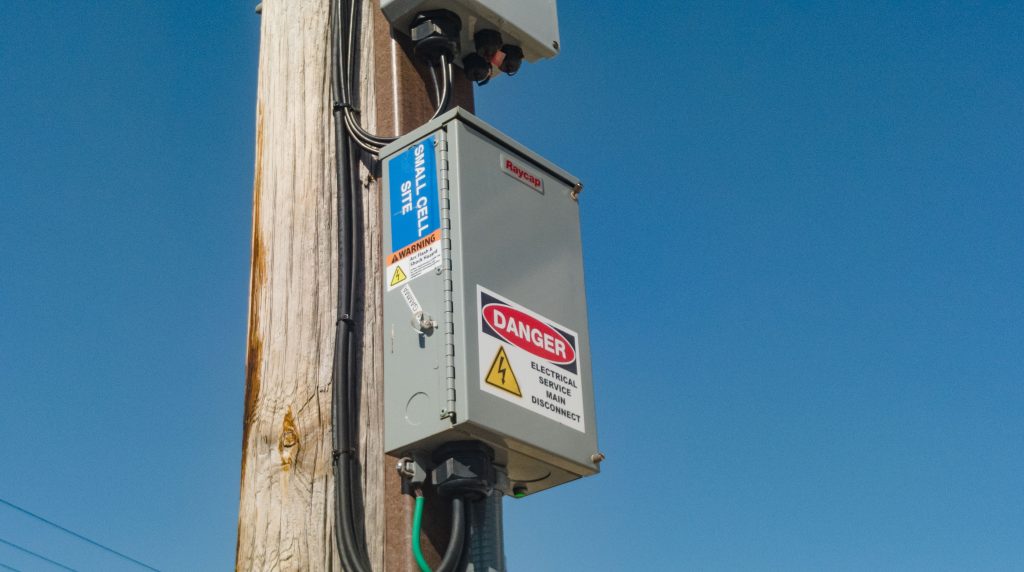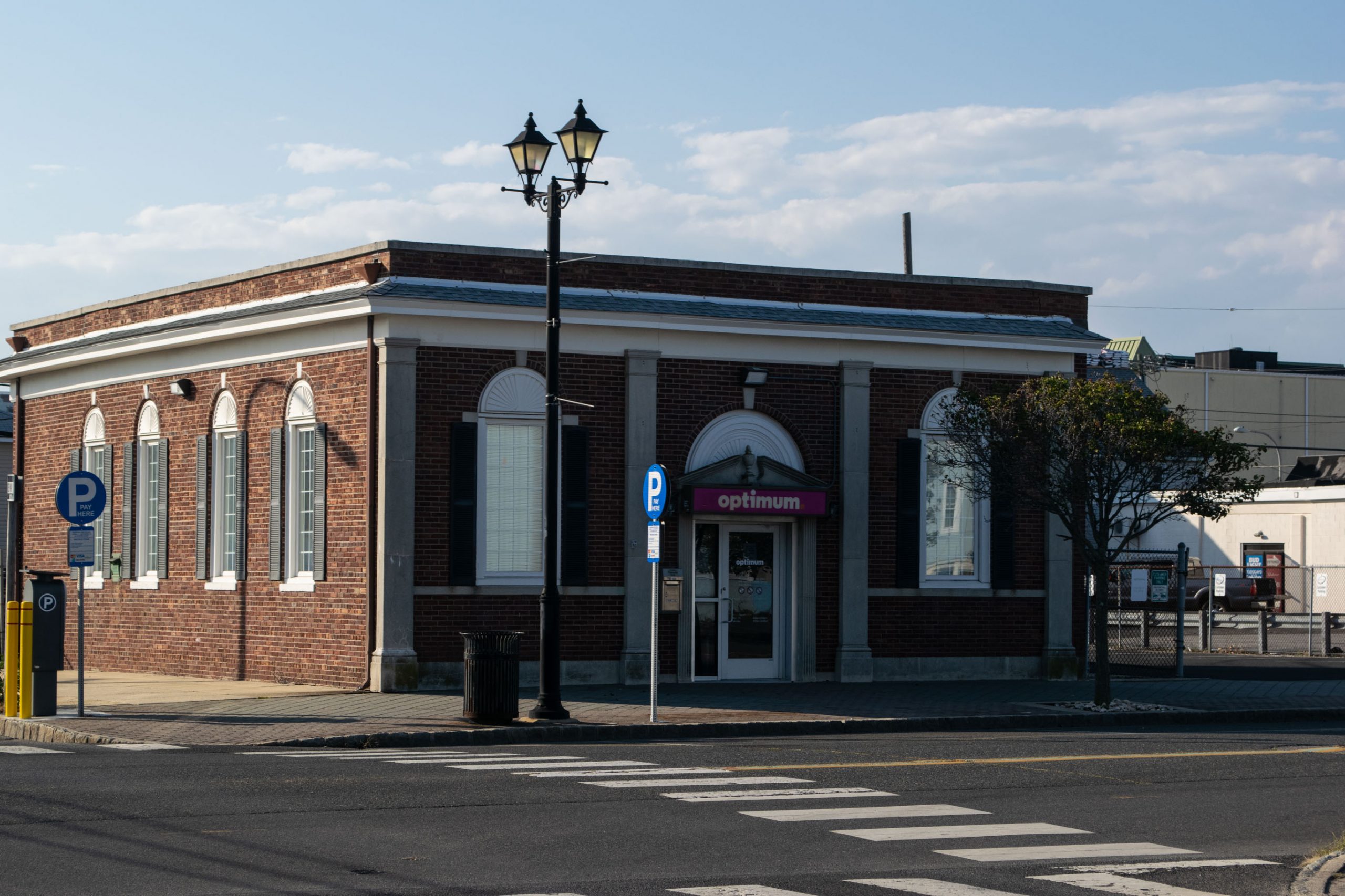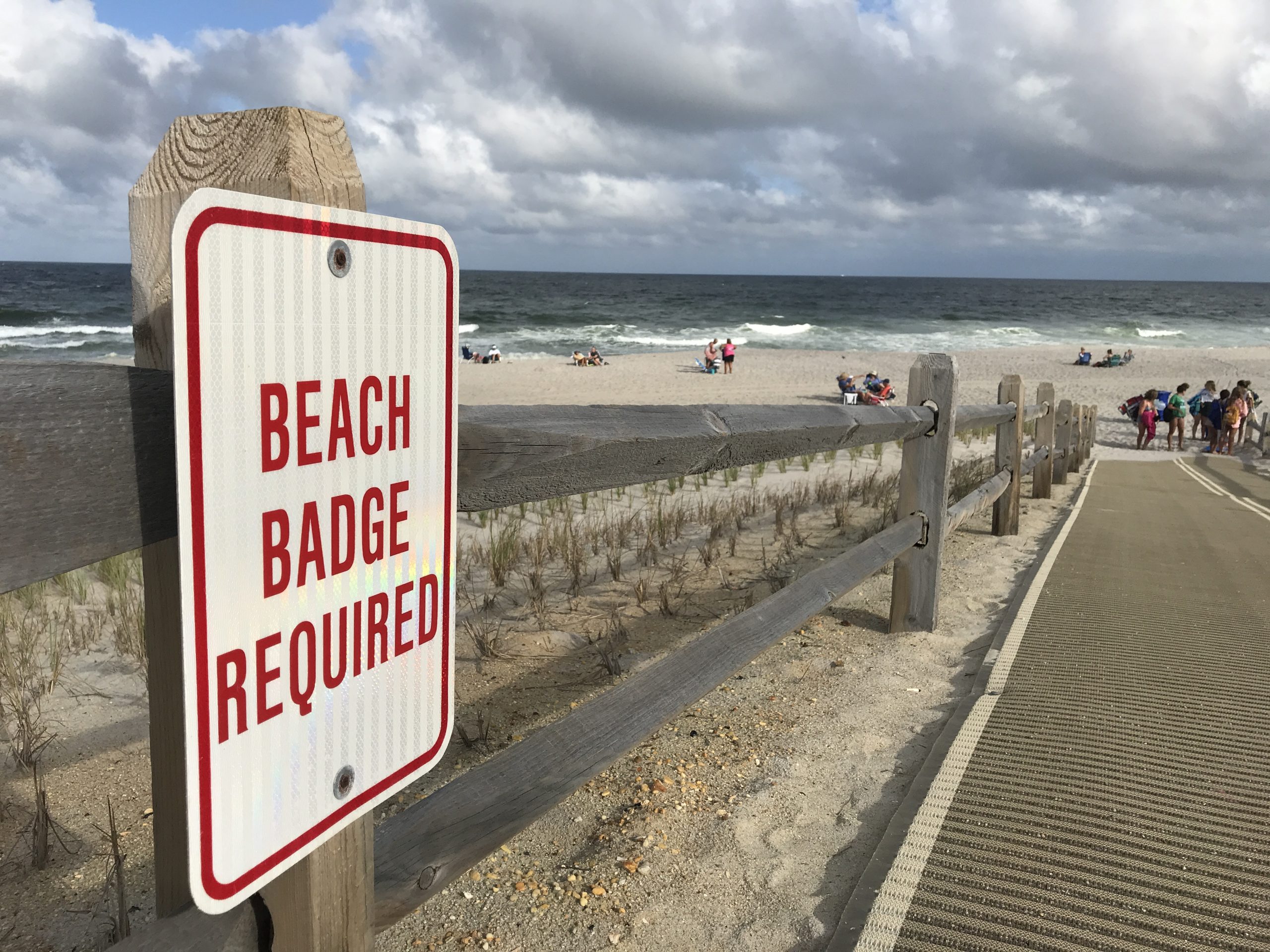
Crews put up a temporary cell tower at the pickleball courts at Sixth Avenue, Ortley Beach, N.J., May 16, 2023. (Photo: Shorebeat)
A stir caused last week in Ortley Beach as residents noticed the construction of a temporary wireless communications tower at the neighborhood’s pickleball court could have occurred in Lavallette.
Wireless providers have found that while coverage of the island is more than sufficient, most customers now use their mobile devices to utilize data instead of making phone calls. While “five bars” may display on a person’s phone, the seasonal population influx overloads the bandwidth of the existing network, leading apps to run slowly or default back to previous-generation technology. With that in mind – and a plan to permanently install new nodes on top of a condominium in Ortley Beach not yet ready for a proposal before the planning board – Verizon began seeking locations for a temporary antenna array to handle digital traffic over the summer.
The company found a partner in Toms River, paying the township $20,000 for the right to assemble the temporary structure on township property in Ortley Beach. Lavallette had been offered the same deal – $20,000 for a temporary tower on the bayfront – and rejected it.
“I think we did the right thing in rejecting that,” said Mayor Walter LaCicero.
Lavallette has become something of a battleground, with a group of residents and some officials opposing the addition of more wireless nodes or towers in town. Two weeks ago, the council held off on a vote that would have set regulations for private wireless tower owners to build co-located “small cell” nodes in certain portions of the borough where more than one provider could use the same pole.
As the council continues to debate the wider 5G ordinance, it came to light that a remote meeting was held with a controversial organization known as Americans for Responsible Technology, an anti-5G coalition that has garnered both support and derision from both sides of the ideological political aisle. While the organization’s motives have sometimes been called into question, the call may have been beneficial in that some common ground could well have been forged.
Councilwoman Joanne Filippone, who chairs the council’s ordinance committee, said that while local governments do not have significant latitude in regulating 5G utilities, a “waiver” clause in the ordinance could help ensure the town does not become overburdened with antennas and nodes on its streets. Moreover, she cited an interpretation of federal policy that empowers wireless providers to offer phone calls and text messaging, with less emphasis on data transfer. Data transfer, however, has largely become to primary use of mobile devices and has been the driving force behind 5G adoption and the expansion of digital networks.

A small 5G wireless facility on top of an existing timber pole, Lavallette, N.J., May 2023. (Photo: Shorebeat)

A small 5G wireless facility on top of an existing timber pole, Lavallette, N.J., May 2023. (Photo: Shorebeat)
Under the proposed 5G ordinance that was tabled two weeks ago, the municipality would promulgate a map of approximate locations where new poles would be allowed in the public right-of-way. A minimum distance would be set between the locations of such poles. The “waiver” clause on the ordinance would apply to companies that insist on placing a pole in an alternative location out of necessity.
“The purpose of the waiver, if you really get to a point where you have to say no, and the company says, ‘but we have to have this,’ they can ask for a waiver and there would be a procedure they could go through,” said Filippone. “It gives you a little bit of leeway to say no when you want to say no, unless they can come up with the supportive data prove it.”
North Wildwood, which, with much publicity, adopted a plan to publicly deploy co-located poles for wireless services, has no towers that are actually being utilized by more than a single carrier, Filippone said.
“In doing some of the research, North Wildwood has many 30, 40, or 50 of those poles,” she said. “There are no multiple carriers on any of those poles – they’re all the same company. Who knows, by the time this all comes about, if there will be a new delivery system that does not use small cell nodes at all.”
The borough may find more pushback if it were to adopt a plan that would curtail bandwidth for data transfer, however, though there is a chance officials may be legally able to avoid considering it.
“There’s no requirement that we have enough capacity for all the kids to bring their phones to the beach and watch a movie,” said Filippone. “The federal law requires voice and text only, and I don’t think that’s ever been explained to us.”
The potential 5G ordinance is under review by the borough attorney, the relevant committee of the governing body and will likely come up for another vote in the near future.

Advertisement

Police, Fire & Courts
Police Investigating Possible Shots Fired in Seaside Heights

Police, Fire & Courts
Cops: Juvenile Arrested After 118mph Joy Ride in Seaside Heights, Toms River Kills 2

Seaside Heights & Seaside Park
Seaside Heights Mourns Passing of Boardwalk Legend, Still Working Into His 90s








